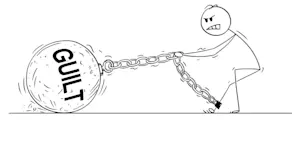What Makes This Word Tick
"Ponder" is a word that invites you to take a step back from the hustle and bustle and simply think deeply. It is often used when weighing important decisions or reflecting on life’s complexities. It's a reminder that sometimes the best response to a situation isn’t quick action but careful contemplation.
If Ponder Were a Person…
If "ponder" were a person, they'd be someone you might find sitting under a tree, notebook in hand, lost in thought. This person would likely be a philosopher at heart, asking life's big questions and savoring the silence that allows for clarity. They’re not in a rush, and neither is the wisdom they seek.
How This Word Has Changed Over Time
"Ponder" hasn't strayed far from its roots. It comes from the Latin word "ponderare," meaning to weigh. Over time, its meaning has metaphorically shifted from a physical weighing to a mental one, where thoughts are evaluated on their significance and impact.
Old Sayings and Proverbs That Use Ponder
The word "ponder" finds its way into wisdom such as, "Ponder before you act," a timeless piece of advice reminding us to think things through. It's the kind of advice that grandparents might impart to ensure you don't jump into decisions too hastily.
Surprising Facts About Ponder
Did you know that "ponder" has linguistic relatives across several languages? In French, there's "pondérer," and in Italian, "ponderare," both carrying the same thoughtful spirit. It seems the whole world agrees that a little contemplative reflection is universally beneficial!
Out and About With This Word
Step into any book club or philosopher's circle, and you're likely to hear "ponder" more than once. It's a staple in conversations that thrive on depth and consideration instead of quick judgments. Museums and art galleries are also prime pondering locations, where the mind can wander and wonder.
Pop Culture Moments Where Ponder Was Used
In movies and television, "ponder" often pops up in scenes of introspection or epiphany. Think of a character standing by a window, deep in thought, pondering their next big move—whether it be in a drama or a comedy, the power of pondering is frequently tapped for narrative depth.
The Word in Literature
In literature, "ponder" often appears in reflective narratives, encouraging readers to pause and think about the characters’ motives or the story's underlying themes. It’s a beloved word in genres like memoirs and literary fiction, where introspection is key.
Moments in History with Ponder
Imagine the Founding Fathers pondering the great weight of the Declaration of Independence or Martin Luther King Jr. pondering his dreams for the future of the Civil Rights Movement. Such pivotal moments throughout history were undoubtedly preceded by significant pondering.
This Word Around the World
In Hindi, you might say "vichar karna," while in Japanese, you’d consider "kangaeru." Pondering transcends cultures and languages, symbolizing the universal human experience of assessing life's challenges and delights with care and attention.
Where Does It Come From?
"Ponder" draws its etymological origins from Latin. "Ponderare" means to weigh, not just in the physical sense of measuring mass but also metaphorically in considering the worth of different thoughts and ideas. It brings a delightful image of placing thoughts on a scale to see how they balance.
How People Misuse This Word
Sometimes, people might use "ponder" when they mean to "guess" or "assume." But pondering requires a depth of consideration absent in snap judgments or quick suppositions. It's more akin to savoring a thought than quickly gobbling it up.
Words It’s Often Confused With
Speculate: While both involve thinking, speculation often involves guessing without sufficient evidence.
Meditate: Meditation leans towards mindfulness and relaxation, not necessarily problem-solving or decision-making.
Reflect: Reflecting often involves looking back on past experiences, while pondering is more about the present or future considerations.
Additional Synonyms and Antonyms
Synonyms you might ponder: ruminate, contemplate, mull over. Meanwhile, antonyms could include ignore, disregard, or overlook.
Want to Try It Out in a Sentence?
Whenever I find myself unsure of what to do next, I take a quiet walk to ponder my options, letting the peace of nature guide my thoughts.
















